Online resources have influenced our daily activities. With so much information at our fingertips, we can answer our queries instantly. It’s no wonder people are utilizing online resources to renovate homes themselves rather than having to pay a professional. The same applies to plumbing projects like water heater installation. In theory, the process seems simple Read more
Whats New
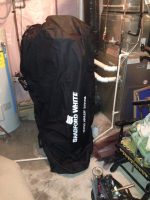
Online resources have influenced our daily activities. With so much information at our fingertips, we can answer our queries instantly. It’s no wonder people are utilizing online resources to renovate homes themselves rather than having to pay a professional.
The same applies to plumbing projects like water heater installation. In theory, the process seems simple to follow. But instant knowledge cannot compete with years of experience. Beginners can easily make risky and costly mistakes. To ensure you do not face such consequences, we have highlighted some common installation mistakes and ways you can avoid them.
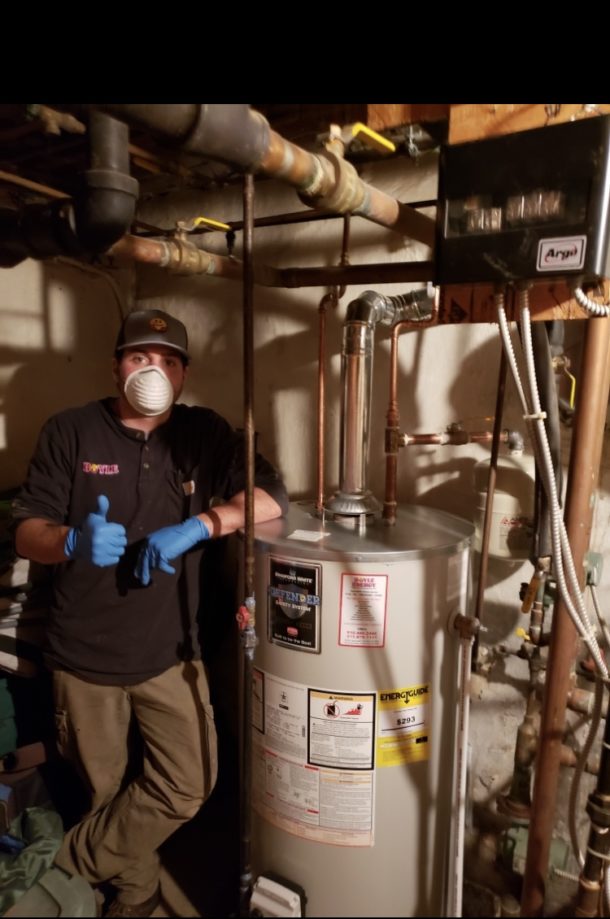
1. Improper Location
The location of your water heater is crucial for its efficiency and safety. Try not to place them in storage closets and attics. You may rarely visit these parts of your house, and will not know about damage until it is too late. To minimize plumbing, place the water heater closer to its area of use, such as the kitchen. For more efficiency, modern models are more insulated, making them broader. They may not fit in the same position as the old one. Instead, accommodate them in your backyard. Adequately placing water heaters ensures they do not ruin the interior’s appeal while working optimally.
2. Poor Drainage
Your heater must drain extra water whenever it gets too hot or builds up excess pressure. Connect the drain line from your tank to the TPR valve, which should discharge into a drain below. If there is no drain beneath, you must place a correctly sized drain pan. The drain pan should be at least 1.5 inches tall and 2 inches broad and made of corrosion-resistant materials. Place the drain correctly to avoid leaks. Otherwise, mold may develop due to subsequent water damage.
3. Improper Installation of Relief Valves
Relief valves are safety features that help regulate temperature and pressure in geysers. The tank will likely blow up if you install them incorrectly, dousing everything within a few feet of the tank. To avoid any accidents, be careful in installing the valves. Mount the valve to the tank’s side 6 inches above the floor, and connect a threaded drain tube to the valve outlet for additional protection. Regardless of your skills in installations, we recommend taking professional help. A mistake can cause harm to your property and loved ones.
4. Incompatible Metal Connection
Some people don’t consider the compatibility of metal pipes when connecting them. Even a 0.1mm difference in the pipes’ diameter can result in their corrosion. If your water pipes are made of copper, you should use brass connectors. Combining copper pipes and galvanized steel connectors will result in a poor connection since they are incompatible. These connections will eventually corrode, cause water leaks and reduce the water heater average lifespan.
5. Soldering of Pipes
Soldering is undoubtedly the best technique for connecting the water line and the tank, but its heat can harm the plastic. Avoid soldering and bringing the propane torch near the water tank. Instead, unscrew the pipe’s nipples from the tank. Create a tiny extra segment, and solder it to the nipples. This way, you won’t need to get the propane torch close to the tank. Consider getting help from heater installation service companies for safer and improved results.
Endnote
Incorrectly Installing water heaters can lead to many problems, such as the ones mentioned above. Avoid these issues by following the proper instructions and staying away from experimentation. In technical projects like this, prioritize your safety by adhering to certain precautions. If you are a beginner or unsure about the process, consider leaving the installation to experienced hands. By trusting a professional, you will worry less and can enjoy the warm water.
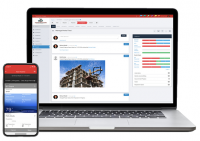
The high competition level in the plumbing industry can make your business struggle to grow. However, you can find ways to attract new clients and generate more profits while gaining a competitive advantage over other plumbing businesses. You’ll need an effective strategy and careful planning to grow your plumbing business. This article outlines five tips Read more
The high competition level in the plumbing industry can make your business struggle to grow. However, you can find ways to attract new clients and generate more profits while gaining a competitive advantage over other plumbing businesses. You’ll need an effective strategy and careful planning to grow your plumbing business. This article outlines five tips for growing your plumbing business.
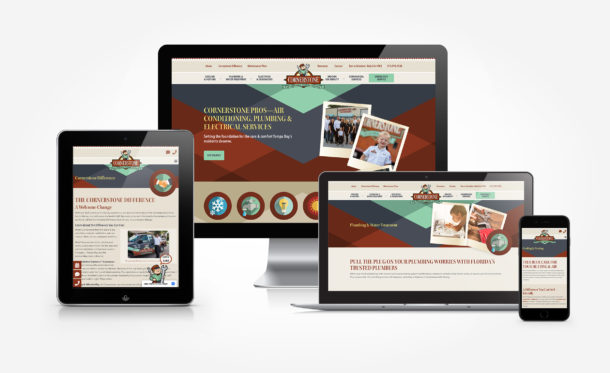
Create a plumbing business website
Creating a website for your plumbing business helps drive traffic to your brand from search engines, resulting in improved revenue and sales. It also offers a quick-to-navigate center for all your services and data while making it easier to reach prospective customers. A website allows you to communicate details about your business in one place for prospects to learn everything they need to know without looking elsewhere.
For potential customers to notice the plumbing services you’re offering, a website designed for plumbers, such as the Buckeye plumbing website, is essential to establishing a solid online presence, making your company more accessible to people looking for plumbing services. It also helps your business rank well on SERPs.
Set plumbing business goals
Most businesses fail because they create unrealistic goals. For your plumbing business to succeed, you must set specific, quantifiable goals, including developing a company to exceed customer expectations, expand your sales, and build a sustainable business capable of thriving off its cash flow. Business goals and objectives give you a clear path to follow while motivating your employees and setting targets to work towards.
They also provide you with criteria for determining whether your company is succeeding. Consider narrowing down your plumbing business goals and objectives for long-term success. Your plumbing business goals should be specific, measurable, achievable, realistic, and time-bound. Track your goals to ensure you’re on the right track.
Identify your target audience
Your target audience comprises people sharing similar demographic features, including age, education, gender, socioeconomic status, and location. Identifying your target audience can enable you to create effective marketing techniques while targeting a specific group of prospects most likely to be interested in your services.
Homeowners, real estate agents, small business owners, restaurant entrepreneurs, facility and property managers, and contractors include the various types of clients you’re likely to encounter in the plumbing industry. You can research to determine the plumbing services that are rarely available within your locality and specialize in that to stand out.
Invest in SEO for plumbers
Considering the plumbing industry’s competitiveness, a website alone can’t get you in front of new clients. This is where SEO for plumbers comes in. homeowners and other potential clients prefer looking online to find a local plumbing service they can hire. With SEO, these customers can easily find you, provided you use keywords that rank.
To increase your leads and sales with SEO, conduct a competitive digital analysis, optimize your site code ad content, publish fresh content, and invest in local SEO. Track your SEO campaign’s performance and tweak it as needed.
Track your success
Creating plumbing business growth metrics is an excellent way to track your progress. Measure your business’s progress with key performance indicators (KPIs) while regularly checking your action plan’s results. Following the results, you may need to adjust your strategy to meet your business goals.
Endnote
Running a successful plumbing business can be challenging. However, these tips can help grow your plumbing business.

Once you’ve sorted out the minimum requirements for your employees, the next thing to do is raise capital for your business. Every business requires cash, and the plumbing business is no exception. You will incur high costs in acquiring equipment and a vehicle, but you do not have to worry if you are operating on Read more
Once you’ve sorted out the minimum requirements for your employees, the next thing to do is raise capital for your business. Every business requires cash, and the plumbing business is no exception. You will incur high costs in acquiring equipment and a vehicle, but you do not have to worry if you are operating on a tight budget as you could opt to get cash from a third party.
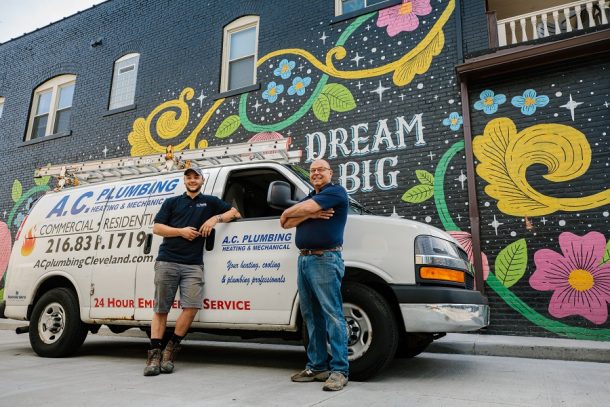
If you cannot raise the required amount independently, you could approach your bank or any other lender for small business loans. Most major banks have small business departments that provide a wide variety of financial options:
- Credit cards
- Business accounts
- Small business loans
These departments usually have business experts that will offer you guidance, and you’ll be able to contact them whenever you need any advice or clarification.
If you decide to follow this path, ensure to bring along your business plan as no bank will lend you money if you lack a comprehensive plan on how to utilize it.
Alternatively, you could go for government financial schemes or ask for help from friends or family. Another option is looking for angel investors who might be interested in your business idea.
Connecting with investors is something that takes a little practice and plenty of networking. If you’re looking at how to connect with investors, then it’s worth taking a look at any investor events coming up and any official organizations that bring together investors and new businesses.
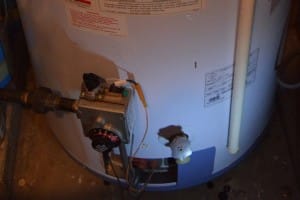
Water heater maintenance ensures hot water keeps flowing and helps you avoid cold showers. If neglected, your water heater could break down. It has safety devices that need annual testing to ensure its safety. Water heaters have pressure and temperature valves for discharging water to protect them against excessive temperatures and pressures. The valves should Read more
Water heater maintenance ensures hot water keeps flowing and helps you avoid cold showers. If neglected, your water heater could break down. It has safety devices that need annual testing to ensure its safety. Water heaters have pressure and temperature valves for discharging water to protect them against excessive temperatures and pressures. The valves should be checked during annual inspections for safety purposes.
Sediment buildup significantly contributes to your water heating system’s inefficiency by settling at your water heater’s bottom, making it hard to generate hot water and lessening the water available for heating. However, regular maintenance ensures your system’s efficiency. Here are five water heater maintenance tips to consider.
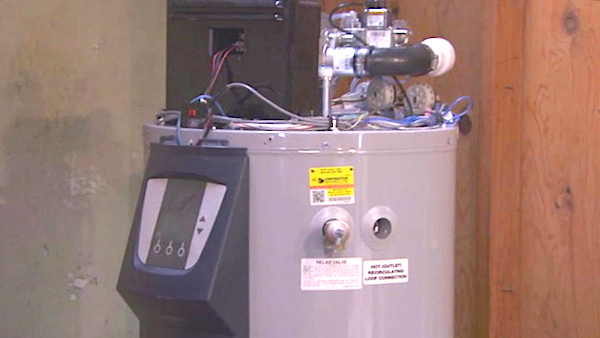
1. Schedule an annual water heater inspection
Skimping on water heater maintenance isn’t good because it could render your water heating system inefficient. An annual professional water heater inspection by Williams Comfort Air or other installation and repair experts near you can help prevent significant problems.
This is because the inspection exercise allows you to identify issues before they get out of hand and get them addressed or repaired immediately, ensuring your water heater functions at its peak and reducing water heating costs. If you have a gas heater, the professional inspector ensures it’s adequately ventilated to prevent the risk of carbon monoxide poisoning.
2. Drain the hot water tank
Draining a hot water tank is an excellent way to extend your water heater’s life. This eliminates sediment buildup to ensure your water heater performs more efficiently, reducing water heating costs. If the tank is neglected, the water heater may not last as long, and the heating bills may increase due to slow water heating.
Since sediment and buildup settle at the bottom of the tank, it isn’t necessary to drain the whole water tank each time. You can flush until most of the dirt is flushed out, ensuring a speedy refill process and preventing you from accidentally turning the heater on without water which could damage it.
3. Reduce your water heater temperature
The hotter the water is in your heater, the more the elements inside of it will contract and expand, weakening them and causing them to erode or corrode. This may also increase the possibility of them wearing out quicker. Reducing your water heater’s temperatures ensures that the materials inside won’t expand or contract as much, extending its life and reducing utility bills. It also makes your plumbing last longer.
4. Insulate the water heater tank
Insulating electric water heaters is a cost-effective way of improving energy efficiency and saving you money monthly. Water heater insulation may reduce standby heat losses by 25% to 40% while saving you around 7% to 16% of water heating expenses. An insulation blanket can help reduce heat loss in your gas water heater. However, you should familiarize yourself with the local utility company and code regulations because some may restrict insulation blankets.
5. Replace the water heater filter
When hard water goes into your heater and starts heating up, the scaling minerals usually come out, creating a rock in the heater. This reduces the water heater’s efficiency until it eventually dies. A water heater filter keeps the hard water minerals from coming out. Replacing it regularly ensures your heater functions effectively.
Endnote
Caring for your water heater increases its longevity, enhances its effectiveness, and reduces water heating costs. Consider using these water heater maintenance tips to leverage these benefits.

No job is too big or too small for trade contractor support. Whether you need help with a quick repair or a complex installation, there are plenty of experts out there who can lend a hand. The key is knowing where to look and how to ask for help. You know when you’re in the Read more
No job is too big or too small for trade contractor support. Whether you need help with a quick repair or a complex installation, there are plenty of experts out there who can lend a hand. The key is knowing where to look and how to ask for help.
You know when you’re in the middle of the job and you realize that there’s more to it than you thought. Or an issue comes up and you need another person in the trades to step in and support you to get it done. In this blog post, we’ll give you some tips on getting expert support when you’re on the job.
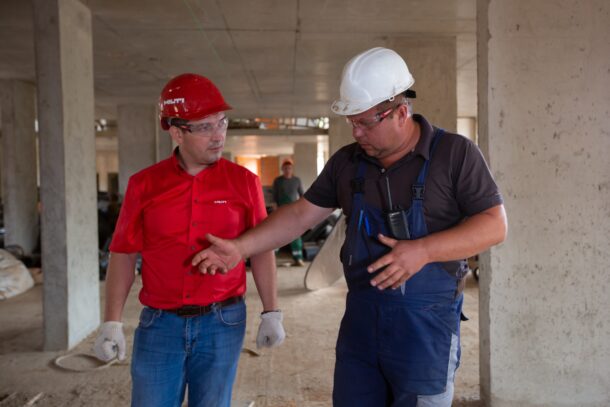
Before You Start the Job
The first step is to do your research. If you know what type of help you need, start by looking for businesses or individuals who specialize in that area. For example, if you’re a plumber who needs help with an irrigation project, you’ll want to find an expert in that field. Once you’ve compiled a list of potential options, take some time to read reviews and compare pricing. This will help you narrow down your choices and find the best option for your needs.
Another important consideration is your timeline. If you have a tight deadline, make sure to communicate that to the expert you’re working with. If you need to get out mobile welding services then you’ll want to arrange that ahead of time to support your job. This will help them plan their work accordingly and ensure that they’re available when you need them.
Asking for Help
Once you’ve found the right expert for the job, it’s time to reach out and ask for help. The best way to do this is by being specific about what you need assistance with. When possible, include as much information as possible so the expert can give you an accurate quote.
It’s also important to be clear about your budget. This will help the expert determine whether they’re able to take on your project within your specified price range. If not, they may be able to suggest alternative solutions that fit within your budget.
How to Find the Right Person
No matter how experienced you are, there are always going to be times when you need a little help on the job. Whether it’s a tricky installation or a last-minute change order, it’s important to know where to turn for expert support. Here are four places you can go for help when you’re on the job.
1. The Internet
Whether you’re looking for installation tips or troubleshooting advice, chances are good that you’ll find what you’re looking for online. There are plenty of forums and chat rooms where trade professionals can ask questions and get answers from their peers. In addition, many manufacturers and suppliers offer online support services.
2. Trade Associations
If you’re having trouble finding the information you need online, your next best bet is to contact a trade association. These organizations represent professionals in all sorts of trades, and they can often provide members with access to experts who can offer advice and answer questions.
3. Local Suppliers
When all else fails, your local supplier is always a great resource for expert support. These businesses depend on repeat customers, so they’re usually more than happy to help out with installation issues or other problems you might be having. In addition, many suppliers offer training courses on the products they sell.
4. The Manufacturer
If you’re still struggling to find the answers you need, your last resort is to contact the manufacturer directly. Many manufacturers have customer service representatives who are familiar with their products and can offer helpful advice. You may also be able to find helpful information on the manufacturer’s website.
Calling in the Experts
Getting expert support on your next job doesn’t have to be difficult—just follow these tips! With a little research and planning, you can find the perfect individual or business to lend a hand with even the most complex projects. So don’t wait—get started today and rest easy knowing that you have the support you need to get the job done right.
No matter what kind of problem you’re having on the job, there’s an expert out there who can help you solve it. By turning to the internet, trade associations, local suppliers, or the manufacturer, you should be able to get the answers and information you need to get the job done right.
